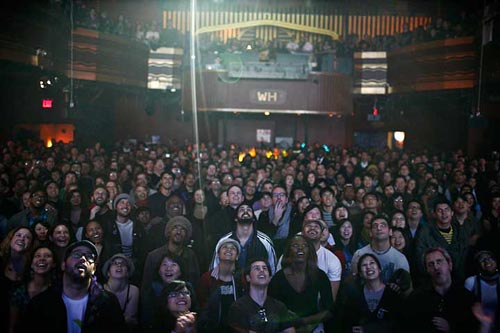Interview: The Box’s Founder + Creative Director Simon Hammerstein
Talking vaudeville, politics and rage in advance of the no-limits theater’s 10th anniversary
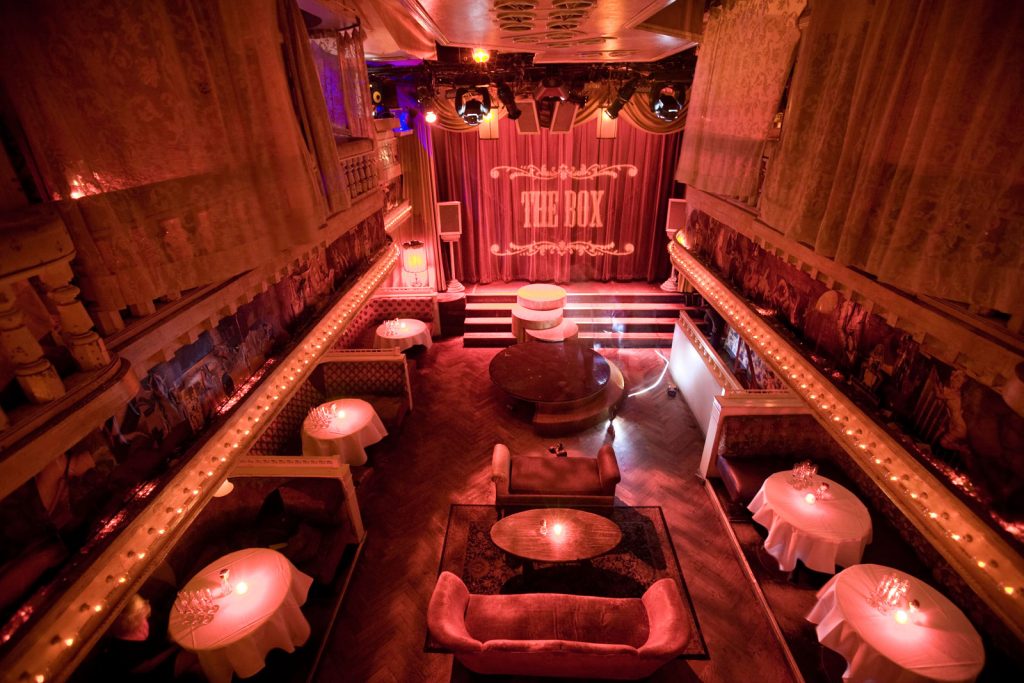
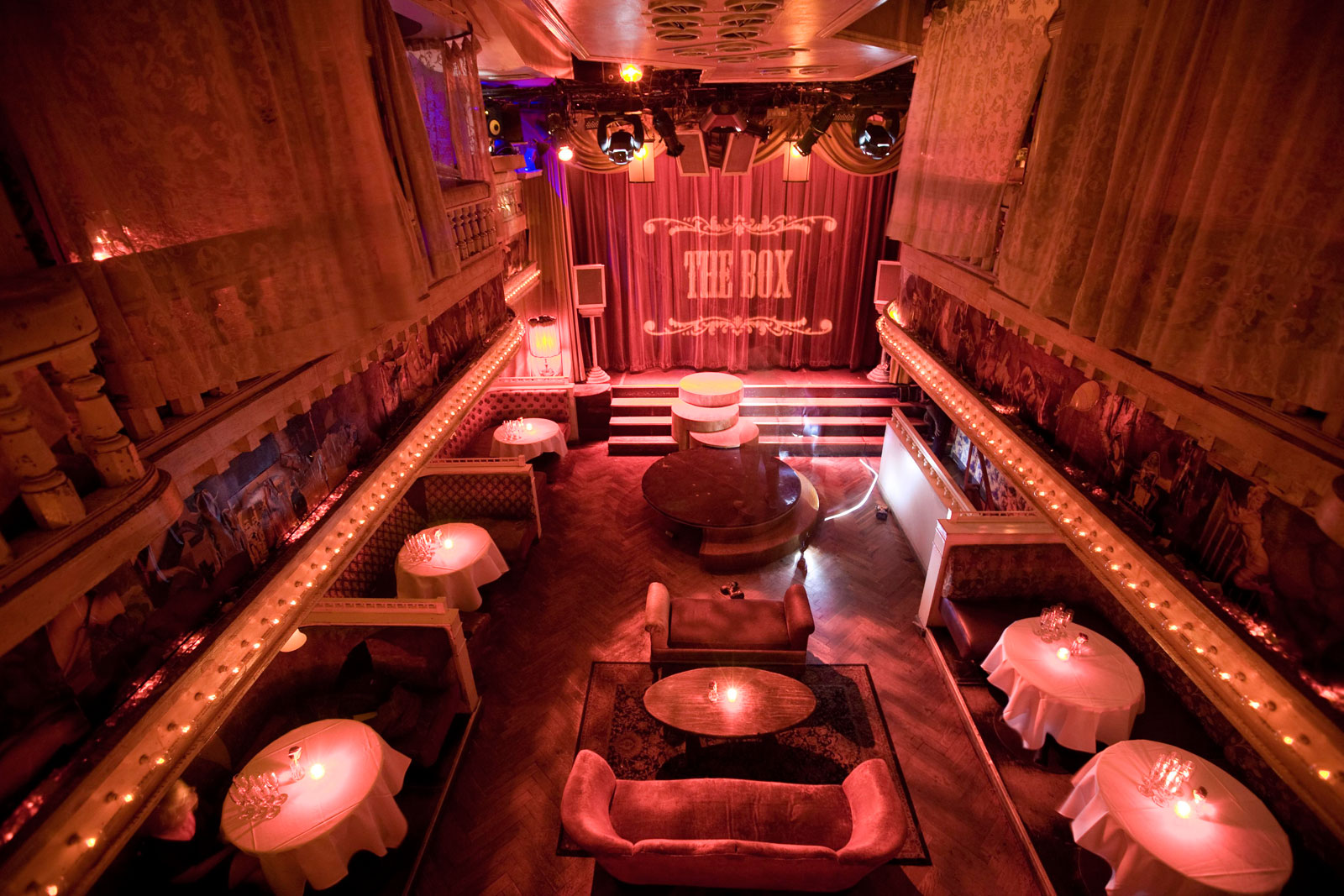
There is a level of nightlife that extends beyond bottle service, flashing lights and dancing without regard for the forthcoming day. A rarefied New York City list (including Studio 54, Palladium and Limelight) saw uninhibited creativity, collaboration and revelry. Celebrating its 10th anniversary today, the Lower East Side’s no-limits theater The Box has entered the echelon. Just past the velvet rope, hundreds of thousands of guests have discovered vaudeville for the modern day—at times shocking, at times grotesque. There’s a potency to the presentation, set in an almost anachronism-free petite playhouse. Here, for a decade now, individuals of all ages, genders, races, ethnicities and orientation have thrown down champagne and left everything ordinary outside. Over one thousand acts have taken the stage; some quite famous, others so obscure one feels like they’ve been let in on a scintillating secret.
Nothing in NYC survives very long. The Box defies this. To get a better sense of how that’s been possible, we spoke with founder and creative director Simon Hammerstein on the state of the city, theater and the politics surrounding it all.
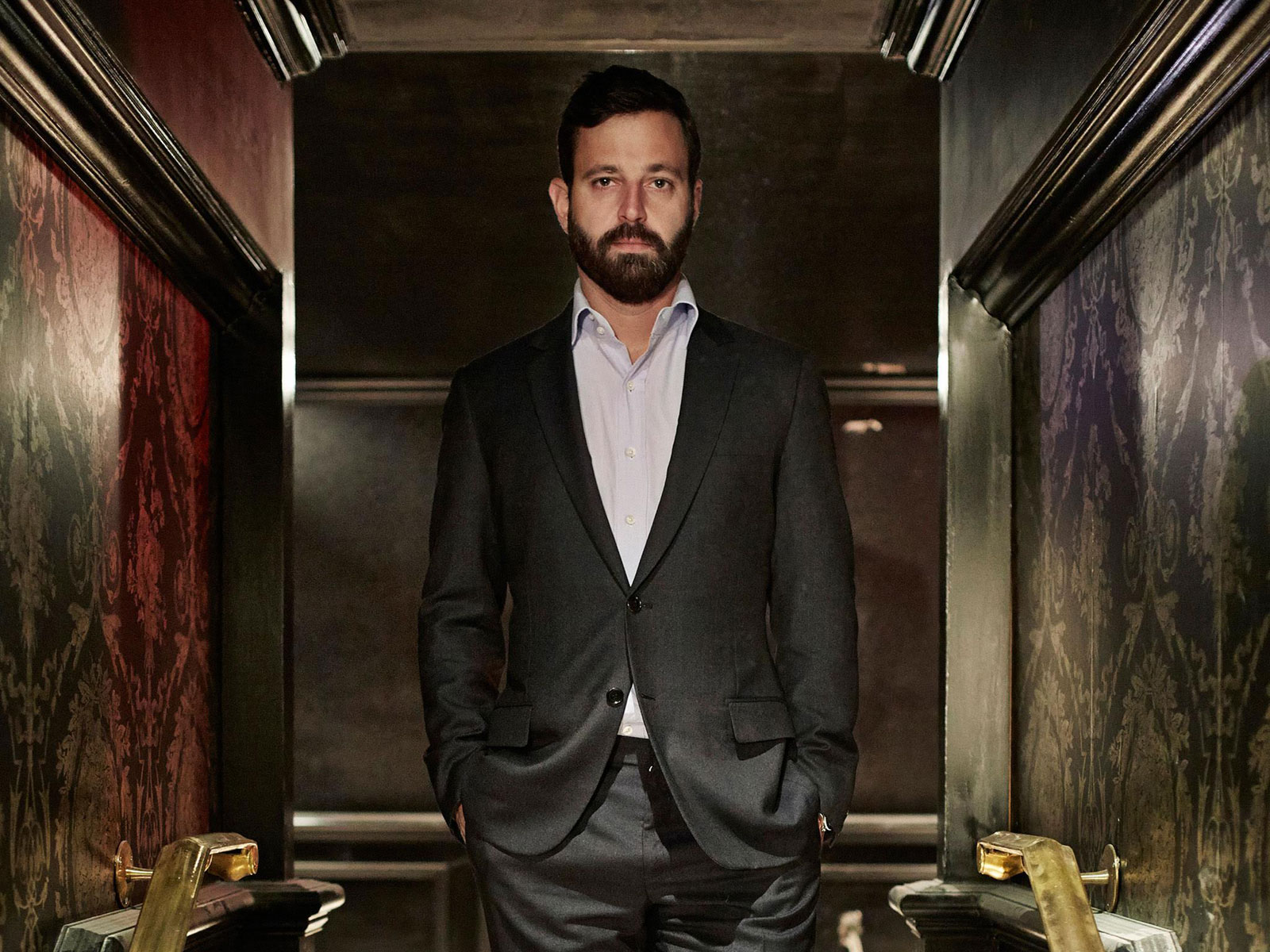
There was nothing like The Box when it opened and there still isn’t today. How did you know something like this would succeed for a decade?
It was never our intention. The universe led us to this. I thought I was doing a theater with a bar, putting on Eugene O’Neill or lost Kerouac plays. I was a theater director. We wanted to do long running shows, but it would be a funky opera/theater house with a bar.
We did a private event for André Balazs’ 50th birthday. He found us Raven the emcee and he wanted a variety show. The whole rehearsal process with the orchestra, dancing girls and variety acts, as a director—it was very special and I realized how much I enjoyed this format. We took it from there. We ran that show late-night while trying to figure out what play we would start with. We never ended up running a play. This was a complete accident. If you looked at my chalkboard of ideas as I was building The Box—even through construction—not one word ever had to do with vaudeville or shock acts or performance art or variety.
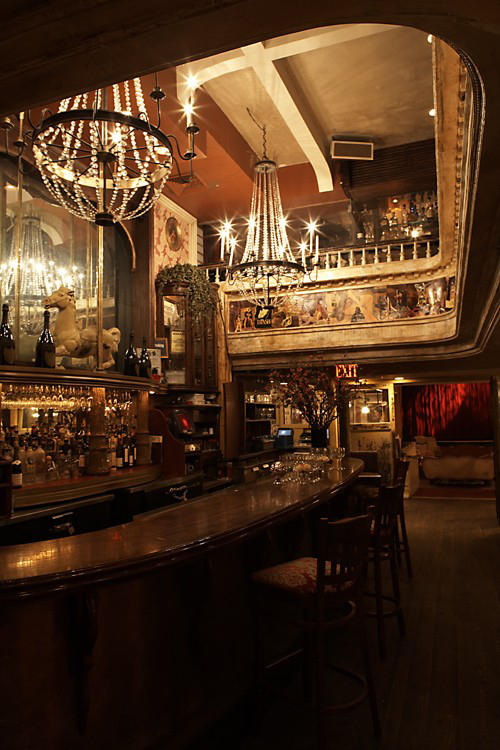
Do you feel like any of those terms actually sum up what goes on here?
Theater of the absurd, theater of cruelty, theater of the surreal or sublime, perhaps. My great-great-grandfather also owned variety theaters. Maybe his ghost is forcing my hand. He had Paradise Roof Garden, which was a late night vaudeville theater that had Houdini, Will Rogers, Charlie Chaplin, WC Fields, Mae West. Those were his company performers. He did all kinds of crazy things. He was a wild man and started two NYC riots and spent time in jail. He was a larger than life character. As this theater opened and I started learning more about him, it intrigued me. I’ve also always wrestled with the fact that my grandfather was a big Broadway guy and if I wanted to have that kind of respect for myself and mirror of my family I would have to be on Broadway to show him.
Since the start of The Box I’ve never been offered a professional directing gig and I was working non-stop in this world for 10 years prior to The Box opening. I have painted myself into a very particular corner as a theater artist. It has taken me a long time to come to terms with that. I thought all along this was just a cool thing I’ll do in my 30s but after that you know, I should be working toward something far more respected. Actually, though, we’ve touched so many lives, put roofs over so many peoples’ heads and so many individuals from less accepted life backgrounds really get a sense of family, community and non-judgment here. We are proud of that. And we are proud to be able to pay theater performers a living wage in NYC and allow them to continue to make their work.
Let’s talk about your process as a director.
Rage. I think of Roy Jones Jr. When you watch him before a fight and he’s punching himself in the face in the dressing room. I was talking to my emcee last night and I was explaining that I have to get really worked up, in the most angry state of mind so that it fucking matters. All of this singing and dancing has to grab you… My performers are used to me being a complete and utter asshole. That’s my juicy place. There’s none of that theoretical, professorial crap. That’s my rehearsal process: getting angry.
Over the course of the decade, has your approach change? Has the idea shifted?
I think technically it has gotten better. We’ve had enough experience that I can now focus on the meat and potatoes: what are we addressing? What issues are we addressing on stage politically? Rather than “Oh, let me tell you how to do your job, sound guy or lighting guy or stage manager.” So that’s made my life a lot easier.

With the development of acts, how do you try to maintain consistently relevant content a decade in?
I am a complete news whore. I love trawling Instagram for trends. I’ll just think about the hypocrisy of it. Do you think liking someone protesting in DC is the same as going to DC? All of these things that are just complete jokes that don’t make a difference. That pisses me off. I want to get that off my chest. I look at double standards. Even the audience, I need to get my shit out and make them confront decisions.
The only thing that’s valued in New York is new
Have you witnessed a change in audience over the years?
When we first opened it was the intelligentsia of New York and they were only allowed in every night. After year one they were so sick of it because they came 360 days out of 365 and they were like, “You’re so over.” A new crop takes their place and then the next year, that first group of people miss it. So we are retro-cool again. Every other year you are retro-cool. We’ve been lucky. It’s hilarious. The only thing that’s valued in New York is “new.” And yet this place was already antique-y and old before we opened it because we made it looks like it had been here 100 years. It feels like we are going back to a place that the ghosts still inhabit, but also looking forward to what’s going on right now that we must bring attention to. The great thing about The Box is that every week we rehearse the show. I can have an idea Tuesday morning and Tuesday night you’ll see it in the show. It’s a nice feeling to have such an immediate response.
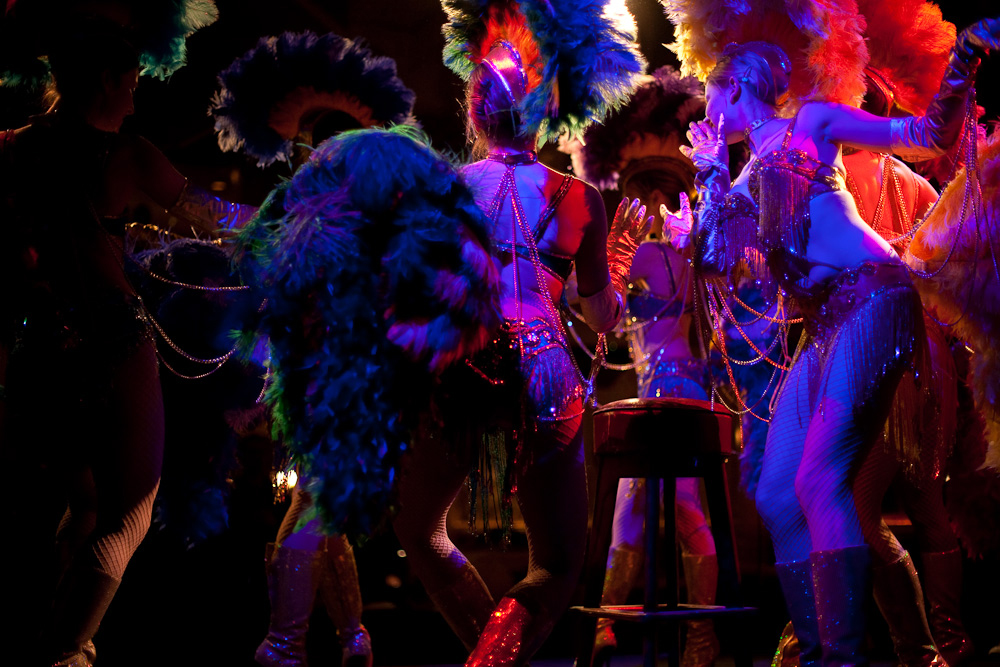
What about brand expansion. The Box opened in London. You’ve done pop-ups. You yourself brought Box-like performances to Miami for Art Basel at Faena.
We’ve done a lot of events under different names and partnerships. I think that only helps promote the best of The Box. We are always throwing something weird. I am happy to reach as many people as possible on that. As far as London, it has an amazing night life culture. There’s a lot of different counter-cultural movements and a huge performing arts scene. You combine all of these things and you get a group of people that appreciate The Box’s attitude and point-of-view.
There are different nightlife offerings for everybody. When I first went to clubs, as a 14 year old, to Shelter, there was this weekly party called NASA. Everyone dressed up. It was the freaks. We were all the freaks. I loved it. It spoke to me. When New York moved to bottle service, it lost all the freakiness. I get the business model of bottle service because there’s a huge overhead paying rent in New York and I have 100 people on staff. But I didn’t want to lose the joie de vivre and the humor and the freakiness of what New York is really about: diversity; high-brow, low-brow and middle-brow all coming together. Whatever we do during the day, who gives a fuck? It’s nighttime. We are the wolves. Let’s party. But this is not just a burlesque strip-tease. It’s a statement about femininity and power and gender issues. These are important to address.
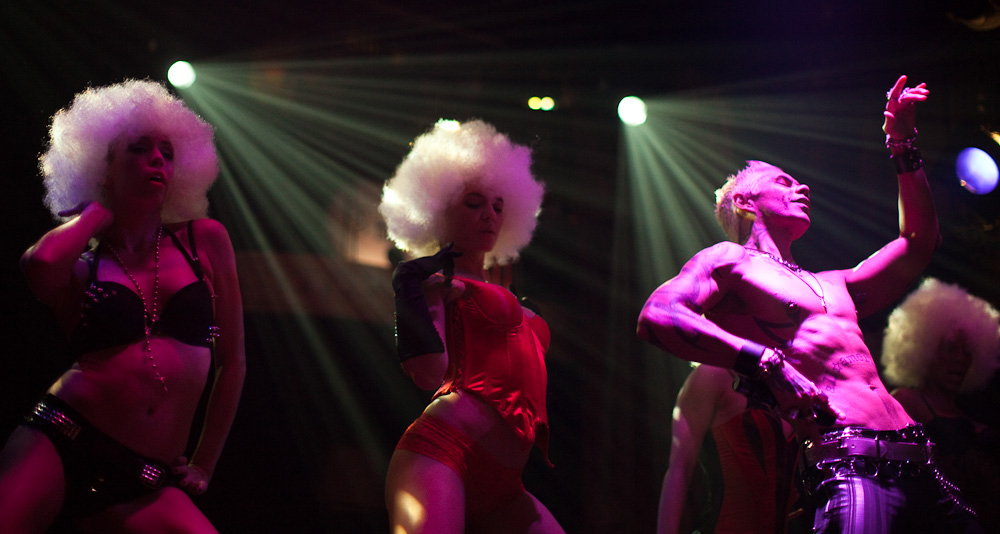
How do you maintain the mystery around the destination?
I refuse to do any kind of mass marketing. It’s important for us to hold true to that. I don’t want to spoil the fun or give away too much. This is not a tangible product. It’s an intangible experience. We are selling you memories. We are in the memory business. I can’t advertise that. You can only experience it that night, depending on who’s on stage and who’s in the house. It’s that alchemy that you cannot bottle.
There’s also the reputation of the door. It’s known to be difficult to get in. What do you say to the people who really want to experience what The Box has to offer?
Honestly, if you came up and smiled, you’ll get in. It’s all attitude. If you come up scared and like you’ll be a wallflower, why would we want you in here? Grin at us and let us know you are going to bring it and make the party better. We will want you in here. People self-edit too much. Come up and smile.
Images courtesy of The Box

